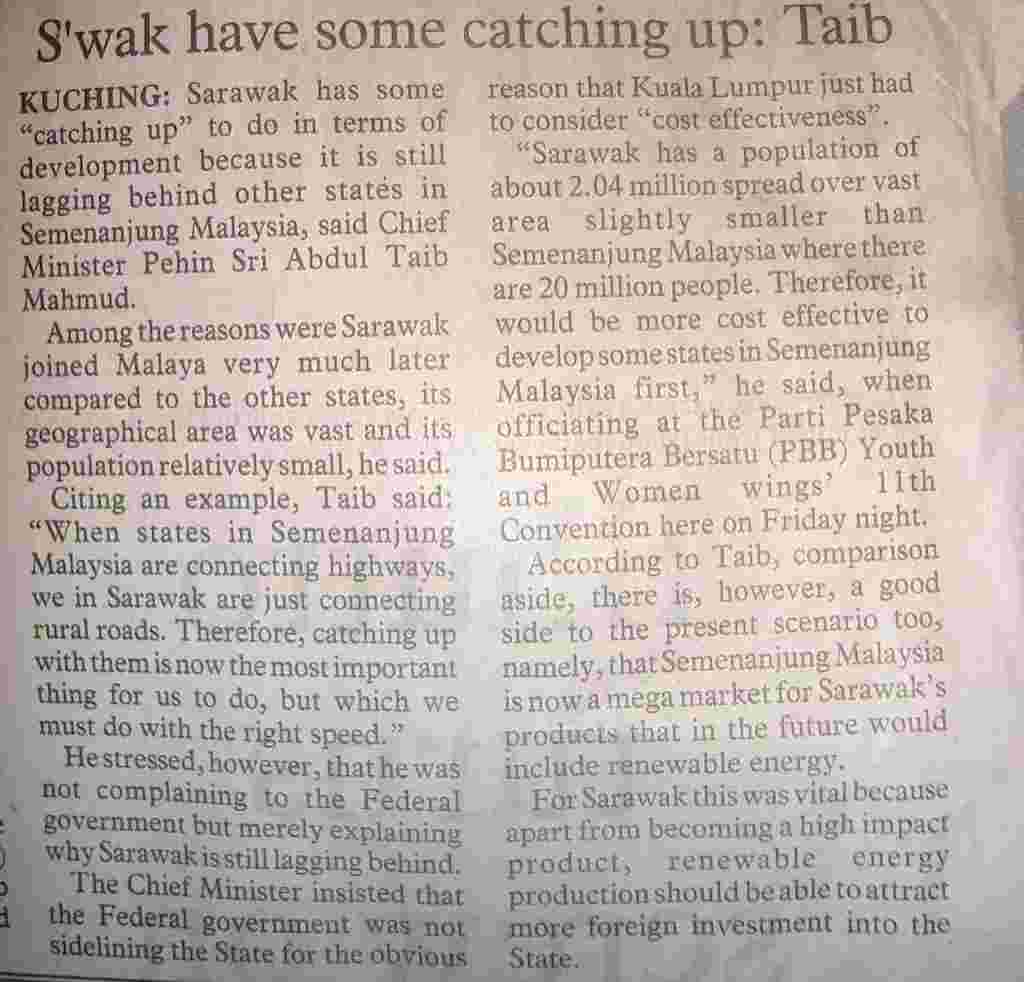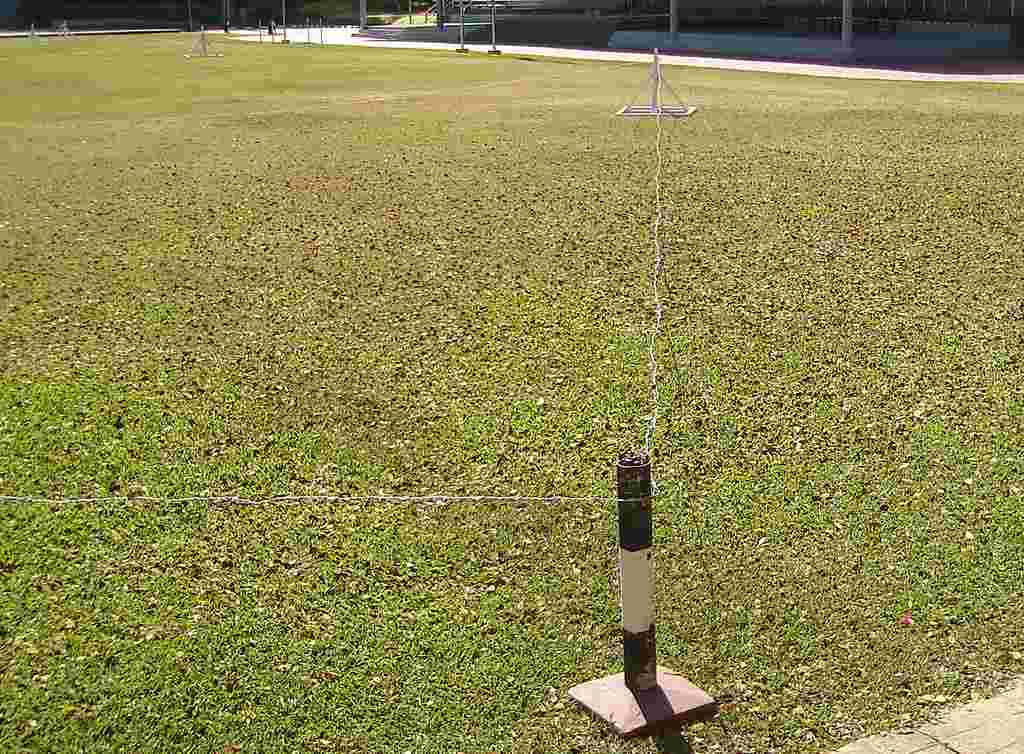East Kalimantan is 50% richer than Sabah in 2010
A neighbour underestimated
by Raja Petra Kamarudin on Tuesday, 23 August 2011 at 07:05
http://www.facebook.com/PiEeAwanG#!/notes/raja-petra-kamarudin/a-neighbour-underestimated/10150292149369658
By Karim Raslan, The Star
The buoyant statistics coming out of East Kalimantan underline the extent to which the once-poor neighbour has eclipsed Sabah. And until Sabahans can exorcise their ghosts, Indonesia will remain an untapped mirage.
WE are living in an age of tremendous financial turmoil. Currency and equity market gyrations have dramatically altered relations between nations and entire regions. Indeed, the decline of US and European competitiveness and the attendant acceleration of Chinese wealth have been the most note-worthy developments.
What is less well-documented is the fact that these trends have also led to significant changes within South-East Asia with China’s (and India’s) hunger for natural resources driving prices ever higher.
This is most apparent on the island of Borneo.
In 2010, the GDP per capita in Sabah was RM8,450. By way of comparison, the GDP per capita in the neighbouring Indonesian province of East Kalimantan (or Kaltim) was over US$4,000 (RM12,000).
While the Kaltim statistics are inflated by skyrocketing coal, as well as oil and gas prices, the reality shows a marked increase in living standards for the province’s 3.2 million people.
In fact, Kaltim’s booming economy is also contributing to Sabah’s shortage of labour for the plantation sector.
Meanwhile, decentralisation initiatives (dubbed regional autonomy) meant that a greater proportion of the natural resource bounty was being retained locally.
Kaltim is Indonesia’s largest producer of both coal and oil/gas. At the same time there are plans to increase palm oil planting to well over 1.5 million hectares.
Balikpapan – the premier commercial hub with a population over 600,000 – is also a major transport and services hub.
The city’s Sepinggan airport (with over five million passengers a year) is Indonesia’s fourth busiest.
The buoyant statistics coming out of Kaltim underline the extent to which the once-poor neighbour has eclipsed Sabah and indeed Malaysia.
This is all the more ironic given the fact that for many decades Sabahans have felt imperilled by what they’ve perceived as waves of “desperately poor” Indonesians and Filipinos pressing at their borders.
Indeed, the control (or lack of it) of migrant workers has been an enormously controversial issue in Kota Kinabalu.
Sabah’s exponential population growth – most notably in the 1980s when naturalisation policies (covert or otherwise) were at their most pronounced – witnessed a dramatic increase from 929,992 in 1980 to 1,734,685 in 1990.
Indeed, it is arguable that Sabahans have been traumatised by the massive influx of illegals.
The state’s indigenous communities have seen their demographic and political leadership whittled away.
Unsurprisingly, they are deeply suspicious of Indonesians and Filipinos.
All this has made it difficult for Sabah to leverage Indonesia’s current prosperity despite the state’s strategic location.
Sabah has very poor connectivity with Kaltim, so much so that even the lengthy land border lacks formal road crossings.
Still, Indonesians – including Awang Faroek, Kaltim’s Governor – are lobbying hard for a link at Serudong along the Tawau/Kota Kinabalu road.
In the absence of an overland crossing, hundreds of thousands of Indonesian workers in Sabah have been forced to travel by ferry through Tawau’s meagre and unimpressive port facilities.
By way of comparison, the Entikong crossing between Sarawak and West Kalimantan has become a major thoroughfare with countless buses plying the route linking Pontianak and Kuching.
Moreover, it is estimated that some 3,000 Indonesian students are currently studying in Kuching’s many private educational institutions.
At the same time, direct flights (on local carrier, Kalstar) linking the two cities have further enhanced connectivity and opportunities for businessmen on both sides of the border.
Kota Kinabalu and Balikpapan are like step-sisters. A journey between the two cities requires an awkward and time-consuming detour through either Kuala Lumpur, Singapore or Jakarta.
The alternative is the nerve-wracking ferry from Tawau to either Nunukan or Tarakan ... neither of which are particularly attractive for tourists or business travellers.
But Kota Kinabalu remains a superb destination.
With its waterfront lifestyle, schools, hospitals and international flights, the city is poised to become a popular hub for Indonesians – from as far away as Banjarmasin, Makassar, Samarinda and Manado.
It is worth noting that all four cities are beneficiaries of the natural resources boom and growing faster than the national average.
Indeed, other Malaysian cities such as Penang and Malacca have become adept at tapping the Indonesian demand for healthcare, education, housing and retail.
It remains to be seen whether the socio-political trauma of past decades could be overcome to allow Sabah to maximise these opportunities.
However, thankfully, some of Sabah’s leaders are beginning to recognise their neighbour’s vast potential.
Flamboyant former chief minister Datuk Harris Salleh has been a major promoter of the cross-Borneo linkages.
Last year, he undertook a highly publicised tour across Indonesian Kalimantan.
Similar sentiments are raised by Sabah Economic Development and Investment Authority CEO Yaakub Johari who confidently said: “History aside, we see Sabah acting as a conduit between an expanding Indonesia and the dynamic Northeast Asian markets.
“Enhanced connectivity whether by land, air or sea is a must.”
Until Sabah and Sabahans can exorcise their ghosts, Indonesia will remain an untapped mirage.


